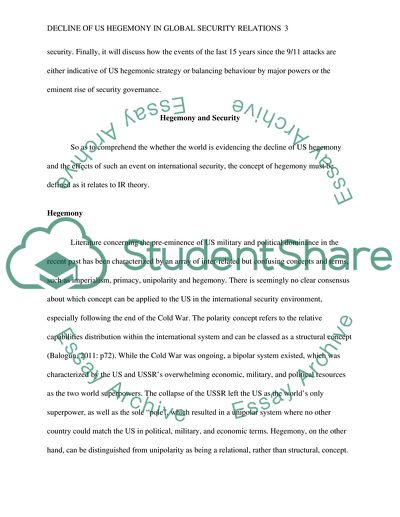Cite this document
(“Decline of US Hegemony in Global Security Relations and the Rise of Term Paper”, n.d.)
Decline of US Hegemony in Global Security Relations and the Rise of Term Paper. Retrieved from https://studentshare.org/politics/1836865-international-security
Decline of US Hegemony in Global Security Relations and the Rise of Term Paper. Retrieved from https://studentshare.org/politics/1836865-international-security
(Decline of US Hegemony in Global Security Relations and the Rise of Term Paper)
Decline of US Hegemony in Global Security Relations and the Rise of Term Paper. https://studentshare.org/politics/1836865-international-security.
Decline of US Hegemony in Global Security Relations and the Rise of Term Paper. https://studentshare.org/politics/1836865-international-security.
“Decline of US Hegemony in Global Security Relations and the Rise of Term Paper”, n.d. https://studentshare.org/politics/1836865-international-security.


